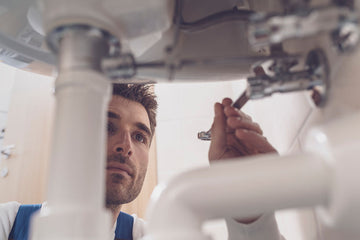In the realm of Industry QA, the importance of efficiently managing and preventing water damage cannot be overstated. It isn't just a domestic concern but a critical aspect for industries that rely heavily on water for their operations. This brings us to the pivotal questionhow does a water leak detector work? Understanding the mechanics behind these detectors is crucial for implementing effective water management strategies.
At its core, a water leak detector aims to identify the presence of unwelcome water in an area and notify the user before it results in financial loss or damage. These devices are not only a proactive measure but also an essential component of a comprehensive water management system.

Understanding the Mechanism: How Do They Function?
Water leak detectors come in various forms, but their primary function remains consistentdetect, alert, and prevent further leakage. Let's delve into the types of water leak detectors and their specific working principles.
Types of Water Leak Detectors
There are several types of water leak detectors, each employing different technologies to achieve the same goal:
- Standalone water sensors: These are placed in areas susceptible to leaks, functioning by detecting the presence of water either through moisture sensors or metal probes. Once water is detected, they trigger an alert through an alarm or via connected devices.
- Smart water leak detectors: These advanced devices usually integrate with home automation systems or directly with smartphones. Upon detection, they can send alerts via SMS or app notifications, providing real-time feedback and control over your water systems.
- Flow-based leak detectors: Installed on the main water line, these detectors monitor water pressure and flow. Any sudden, unusual changes in water usage pattern could indicate a leak, triggering the system to respond accordingly.
Integration and Technology: Making Smart Choices
The advent of technology in water management has opened doors to smarter, more efficient detection systems. Smart leak detectors not only enhance the efficacy of water management but also contribute significantly to sustainability goals.
An informative piece by AI in Water Management explains how technological advancements contribute to more precise water usage monitoring, ultimately minimizing wastage and advocating for environmental consciousness.
For those keen on picking the best devices for their needs, a detailed review of such systems can be found in our resources on Water Leak Detector Reviews.
Why Industries Need Water Leak Detectors
Industries with substantial infrastructure investments and dependency on water for operations cannot afford the risk posed by undetected leaks. The implications extend beyond financial losses, encompassing severe operational disruptions and safety hazards.
Moreover, with increasingly strict regulations and environmental directives, adopting technologies like water leak detectors aligns with legal compliances, offering both a preventive measure and a compliance strategy.
Choosing the Right Water Leak Detector
Deciding on the right water leak detector depends on various factors including the scale of operation, budgets, integration capabilities, and intended use. Whether you're contemplating a purchase for a small startup or a vast industrial setup, strategic selection is imperative.
Referencing expert opinions, as mentioned in the article on the Best Leak Detection Device can guiding your decision.
Maintaining and Monitoring Your Systems
Installation is only one part of the equation; maintenance and regular monitoring ensure the longevity and reliability of your water leak detectors. Engaging with certified technicians and following the manufacturer's maintenance recommendations is key to ensuring optimal performance.
Consider using resources on maintaining such systems, which provide insights into practical steps for upkeep and regular checks.
Concluding Thoughts
The journey to efficient water management through the use of detectors represents a blend of technological prowess and strategic foresight. With the right systems in place, industries can not only protect their assets but also support environmental sustainability efforts.
To further consolidate your understanding, resources on smart leak detection systems offer comprehensive insights on their advantages.

FAQs
What types of water leak detectors are best for industrial use?
Industries typically benefit from flow-based leak detectors due to their capability to monitor large-scale water systems and detect usage anomalies efficiently.
Can smart water leak detectors be integrated with existing systems?
Yes, most smart water leak detectors are designed to integrate seamlessly with existing systems, offering flexibility in alerts via apps or central management systems.
How often should water leak detectors be maintained?
Regular maintenance, recommended at least twice a year, is crucial to ensuring that water leak detectors function efficiently and respond accurately to potential leaks.
By understanding how a water leak detector works and applying this knowledge, Industry QA can both enhance facility safety and contribute significantly to sustainable industrial practices.






